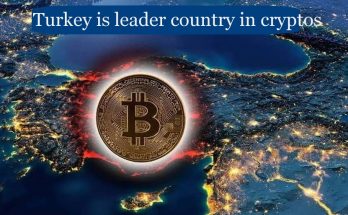The game world offers the 3D aspect of the metaverse, but does not contain all that is needed in a virtual world that can encompass all aspects of life. Crypto; digital proof of ownership can offer other essential parts such as value transfer, governance and accessibility. So what exactly does this mean?
In the future, if we can work, socialize, or even buy virtual items within the metaverse, we will need a secure way to show ownership. We also need to feel safe transferring these items and money within the metaverse. Finally, we may also want to play a role in decision-making processes within the metaverse if it is to be such a large part of our lives.
Some video games already include some basic solutions, but many developers instead use crypto and blockchain as a better option. Video game development is more centralized while blockchain offers a decentralized and transparent way of dealing with these issues.
Blockchain developers are also influenced by the video game world. Gamification is common in Decentralized Finance (DeFi) and GameFi (game finance). There seems to be enough similarity in the future that these two worlds will become even more integrated. The main features of blockchain suitable for the meta-universe are:
1. Digital proof of ownership
By having a wallet with access to your private keys, you can instantly prove ownership of an activity or asset on the blockchain. For example, you can show a complete breakdown of your transactions to show your financial obligation while at work. A wallet is one of the most secure and powerful methods for digital identity and proof of ownership.
2. Ability to collect digitally
We can prove the owner of something, as well as show that a product is original and unique. This is very important for a meta-universe that aims to incorporate more real-life activities. Through NFTs we can create objects that are 100% unique and can never be exactly copied or imitated. A blockchain can also represent ownership of physical items.
3. Value transfer
Metaverses will need a secure way to transfer value that users can trust. In multiplayer games, in-game currencies are less secure than crypto on the blockchain. If users are going to spend a lot of time in the meta universe and even make money from it, they will also need a reliable currency.
4. Governance
The ability for users to control the rules of their interaction with the metaverse is also important. In real life, we can have a vote within a company and elect executives. The meta-universe will also need ways to ensure fair governance, and blockchain is already a proven way to do that.
5. Accessibility
Anyone around the world can create a wallet on public blockchains. Unlike a bank account, you don’t have to pay any fees or share information. This makes blockchain the most accessible way to manage your financial activity and an online, digital identity.
6. Interoperability
Blockchain technology is increasing the compatibility of different platforms. Projects like Polkadot (DOT) and Avalanche (AVAX) allow creating personalized blockchains that can interact with each other. A singular meta-universe would need to connect multiple projects, and blockchain technology already has the solutions for that.
Visits: 119



